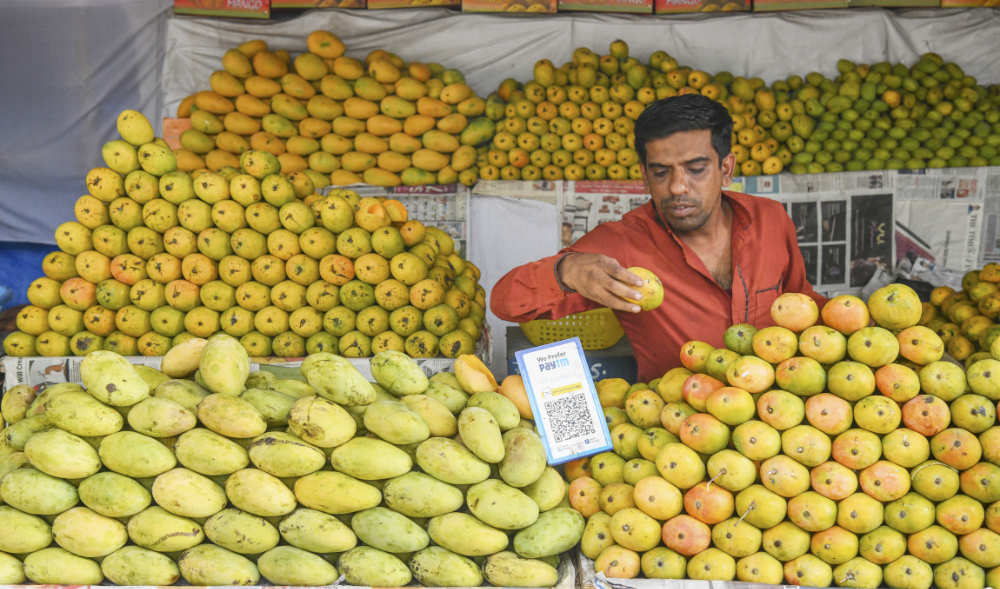NEW DELHI: Mango season is eagerly awaited in India, where no other fruit can sweeten the long summer days and replenish the soul. But not this year after unprecedented heat waves devastated the crops.
The fruit features in Indian poetry, and is also a tool of diplomacy, a symbol of status, and the object of gustatory passion.
Mango season lasts about 100 days, traditionally from late March through June, and is a time of busy markets and festivals celebrating the king of fruits.
Mangoes are cultivated on 1.2 million hectares of land across India, which grows more than 1,500 varieties of the fruit and accounts for around 55 percent of global production.
However, this year, an estimated 80 percent of the crop has been lost after blistering heat waves during the hottest March and April in decades damaged mango flowers, while erratic rainfall helped pests breed in fruit orchards.
“I have never seen such a dip in mango production in my whole life,” Insram Ali, president of the All India Mango Growers’ Association, told Arab News.
“Every alternate season there is a marginal decrease in mango production, but this time it is unusual.”
Ali’s area, Malihabad, in the northern state of Uttar Pradesh, is famous for the Dussehri, a mango variety favored for its sweet flavor and juicy, smooth flesh. But only a fraction of the annual output will grow this year.
“Uttar Pradesh every year grows 4 to 5 million metric tons of mango, but this time we don’t expect more than 700,000 tons,” Ali said. “The mango crop has become the victim of climate change.”
His family have grown mangoes for generations, but if extreme weather persists, the tradition may end.
“The income from mangoes is not going up,” Ali said. “I won’t like my son to pursue this family profession.”
In the neighboring state of Bihar, also a major producer of mango, the changing climate has also wiped out the crops.
“This time only 15 percent to 20 percent of the crop will grow,” Randheer Choudhary, convenor of the Bihar Mango Growers’ Association, told Arab News.
“Even the quality of the fruit is not that good this time.”
The effects of extreme temperatures in March and April were coupled with other factors that damaged orchards and fruits.
“There were very high temperatures followed by high humidity in May because of continuous and intermittent rainfall — that was one contributory factor toward the development of pest in the mango crop,” Abdus Sattar, a scientist from Dr. Rajendra Prasad Central Agricultural University in Bihar, told Arab News.
The pest, known as red-banded mango caterpillar, tunnels through the flesh of mangoes and feeds on the seed, causing the fruit to spoil and fall early.
This year’s extreme weather was likely not an isolated climatic incident.
“I feel such climatic conditions will become normal in the coming years,” Sattar said. “Not only the livelihood of the people but also the quality of mangoes will also be affected.”
The impact on farmers is already severe.
Rajendra Verma, a 73-year-old who has been growing mangoes most of his life, said that it was a “sign of worry for thousands of people whose lives revolve around the mango crop.”
Families traditionally plan their biggest events in line with harvest times, when they can earn enough for bigger expenditure.
“This time some of the families are postponing their weddings for the next season. Mango crop controls our socioeconomic activities,” Gulfam Hasan, who has 700 mango trees in the Malihabad area, told Arab News.
“I have not seen this kind of situation in my whole life.”




